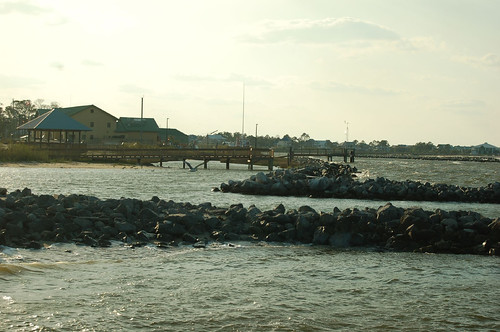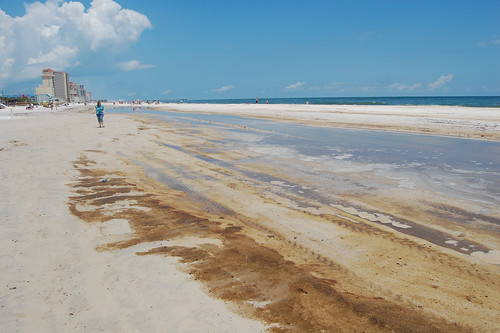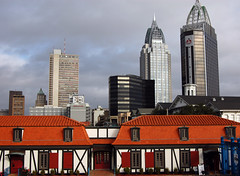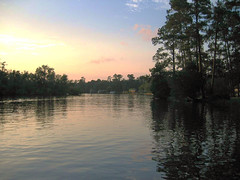In the wake of the spill, planning for resilience

Posted October 5, 2010 at 1:28PM
Last week, Alabama governor Bob Riley issued an executive order creating a Coastal Recovery Commission for his state. The Commission’s task is “to shape, in the wake of BP’s Deep Water Horizon oil spill, a roadmap to resilience for South Alabama.” The three deeply interconnected subjects on the group’s must-address list are the future of the region’s economy, the health of its residents and visitors, and stewardship of its environment. Riley called it “a once-in-a-generation opportunity” to begin a more sustainable course, and as an observer I have to say that I find it immensely exciting.
Having been on the job at NRDC as director of sustainable communities for a little less than a month now, I’m frequently in the position of explaining what this sustainable communities stuff is all about. One of the things I always say in response is that our work should be solution-oriented and forward-looking. In my mind, this isn’t the part of the environmental movement that assigns blame and punishment for transgressions, though understanding the causes of our challenges is important. This is the part that is about finding and implementing strategies that work, for people in places (“communities”), for generations to come. How can we secure a healthy, prosperous, equitable future for our neighborhoods, cities, suburbs, and regions, in a manner that respects the resources on which they depend?
It’s hard to think of a better on-the-ground example than this one, and it’s almost enough to make me want to move to South Alabama to be part of it. Heck, it’s going to be cold and dark here in the northeast anyway over the next few months.
Though many of my NRDC colleagues have been involved in addressing the BP spill in one way or another - senior attorney David Pettit, for one, has been practically living inside the issue over the last six months - it hasn’t been a focus of my own work. I have written, though, about its impact on coastal communities. What is especially disheartening to me has been that so many of the cities, towns and businesses affected by the spill were also hit by Hurricane Katrina five years earlier. In some cases, the devastation wrought by Katrina led to some excellent planning, though plan implementation has required resources and political resolve that are proving difficult to come by. In another part of the country, Greensburg, Kansas, is perhaps the nation’s best-known example of how a major disaster (tornado) has led to a recovery based solidly on the principles of sustainability. Will South Alabama be able to do something as remarkable?
The good news is that the state will have substantial resources to undertake the necessary planning and foundation-building:
“We expect BP and the Obama Administration to reach an agreement soon on how much money from oil spill penalties will be available to the affected states – Louisiana, Mississippi, Alabama, and Florida. And while we don’t know the total or how it will be divided among the states or what strings may be attached to spending, we have every reason to believe Alabama will suddenly have significant resources at its disposal. Likely in the billions of dollars. And we want to be ready with a plan for ways to invest that money over the long term to assure the safety of South Alabama residents and visitors and to make the coast secure for long-term investment.”
The part of Alabama that touches the Gulf is not geographically large, as coastal regions go. It is mostly Mobile Bay and the surrounding region, including the city of Mobile, islands in the Bay and by the Gulf, and many smaller communities. But the metro region is the state's second most populous, and historically its economy has been heavily dependent on the Gulf, through fishing, tourism, shipping, or industry. Moreover, as Governor Riley points out in the video below, the economy and sustainability of South Alabama is important to the state as a whole, in part because of the tax dollars that are generated there.
So what are the key elements that will be required in a more resilient future? Here is an excellent and succinct statement from the commission’s web site:
“Resilient cities and regions often have economies diversified enough to take a hit and come back strong. They’ve successfully protected environmental assets that help insulate them from many threats in the first place, then aid in faster recovery after catastrophic events. The most resilient communities also seem to be ones with systems of governance that are responsive and that enjoy the confidence of citizens, even when there are no emergencies. If you were to generalize, you might say resilient communities already have in place key tools for long-term sustainability. That means environmental sustainability; economic sustainability; and social sustainability.”
 Sounds a lot like sustainable communities, no? Not long ago, my friend and frequent collaborator Lee Epstein and I wrote about how many of the places we enjoy visiting on vacation have been able to stand the test of time, surely the key measure of resilience, and only last month Chuck Marohn wrote that “a collection of strong, local economies is resilient by nature. If one fails, it does not take the entire system down with it.” Chuck cites the diversity of nature as a model. In fact, the concept of resilience has caught on in a substantial way in sustainability circles, though sometimes with bits of survivalist paranoia and hyper-localist prescription to which I’m not ready to subscribe.
Sounds a lot like sustainable communities, no? Not long ago, my friend and frequent collaborator Lee Epstein and I wrote about how many of the places we enjoy visiting on vacation have been able to stand the test of time, surely the key measure of resilience, and only last month Chuck Marohn wrote that “a collection of strong, local economies is resilient by nature. If one fails, it does not take the entire system down with it.” Chuck cites the diversity of nature as a model. In fact, the concept of resilience has caught on in a substantial way in sustainability circles, though sometimes with bits of survivalist paranoia and hyper-localist prescription to which I’m not ready to subscribe.
Alabama’s approach will likely be a pragmatic one. The Coastal Recovery Commission comprises citizen leaders with “broad ranges of experience in civic life in Alabama’s coastal region.” It will be led by Mobile Press-Register publisher Ricky Mathews, who headed a similar commission for coastal Mississippi in the wake of Hurricane Katrina. What a great chance to make things better, for both people and the planet.
Here are Riley and Mathews on the task ahead and how it will be approached:
Move your cursor over the images for credit information.



